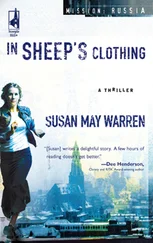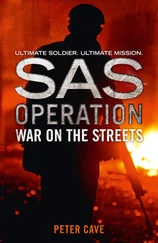“There was an earlier advisory from Operational Headquarters that the Russians were planning an exercise,” Bayer said. He thumbed the dispatches. “Yes, here it is.”
“I suppose it’s possible, sir, that it could be one of theirs.” “Supposing won’t do, Mr. Dass. Stavanger wants us to find out.”
Bayer underlined with a pen the contact coordinates in the latest message from ComlnC. “Quartermaster!”
“Aye, Captain.”
“Plot a course to commence a search of this area. I want an ETA.”
“Aye, aye, sir.”
“Signals.”
“Aye, Captain,” said the yeoman.
“Stand by to send a visual to Narvik: ‘Have second unconfirmed contact. Stop. I will lead. Stop. Coordinates, course, speed, the rest….’ ”
“Aye-aye, Captain,” said the yeoman sketching notes.
Bayer paced the wheelhouse. The steel deck under foot throbbed with the rhythm of the Trondheim’s Laval-Ljungstrom PN 20 geared steam turbines. The sea, now dark gray, splashed and hissed along the frigate’s oil canned sides. It was going to be a gunmetal day.
Impatient, Bayer rounded. “Quartermaster?”
“Sir. Recommend course three-two-zero for ten minutes, then zero-four-one for twelve minutes.
Estimated time of arrival at twenty knots is zero-five-one-zero hours.”
“Very well,” Bayer said. “Send it, Signals.”
“Aye, aye, sir.”
Then, “New course: Steer three-two-zero degrees. Both engines, turns for twenty knots. Mr. Dass.” “Sir?”
“Stand by to launch VDS arrays. Let’s see if we can locate this intruder and force him to the surface.”
Abakov, looking a little shocked, held a message form in one hand and with the other rubbed his bald pate. “They found the missing FSB officer in St. Petersburg.”
They were seated in the wardroom. The ZEVS summons had been followed by a burst message transmitted via Northern Fleet to the K-480 from FSB Headquarters in Moscow. Abakov sat there looking shocked.
“His body was buried behind a car repair shop in St. Petersburg. Zakayev and his men had used it as a headquarters. The man was tortured, burned. He didn’t deserve that.”
“I’m sorry, Yuri,” Alex said, her hand on his arm.
Abakov stroked his mustache, then his bald head. “Bastards.”
“How did they find him?” Scott said.
“One of Zakayev’s men was spotted getting on a train in St. Petersburg and was stopped and questioned. He told them about the officer and about the shoot-out with Ivan Serov in St. Petersburg.”
“Did he know anything about the plan to attack St. Petersburg?”
“No. According to this message, he expired during the interrogation and before they had a chance to ask him.”
Abakov didn’t explain what that meant, to “expire during interrogation,” but Alex bit her lower lip and made a face.
“There’s this too,” Abakov said. “Forensic identified Serov’s body and those of his two men killed in Murmansk. Also, Zakayev is traveling with a young Chechen woman believed to be about seventeen or eighteen years of age. They don’t know her name, only that Zakayev saved her life in Chechnya, and in return she pledged her life to him.”
“What exactly does that mean?” Alex said.
“It’s an old Chechen custom: You save my life, I owe you everything. Only death can break the bond. Do you understand?”
“What does this bond entail?” Alex said.
“She is his wife and must do whatever he tells her. She lives to serve him. For the rest of her life.”
“You mean like a slave?”
“It’s not slavery. The Chechens are a very loyal people. That’s why Zakayev and Litvanov want revenge for the deaths of their families.”
Alex said, “I don’t care how loyal they are, it’s still slavery. She’s being forced to do something she may not want to do.”
“I doubt it,” Abakov said. “After all, she’s a terrorist like the others. She probably had a hand in the Moscow bombing. Someday she’ll probably strap on a bomb and blow herself up in a crowded shopping mall.”
“That’s an ugly thought,” Alex said.
“Terrorism is an ugly business.”
“It stands to reason that the girl is probably aboard the K-363 with Zakayev,” Scott said.
“Then she’s probably prepared to die along with Zakayev, Litvanov, and his men,” Abakov said.
A messman in a filthy white apron entered the wardroom with hot tea and canned peaches, which he served in surprisingly fine, well-preserved white china bowls.
“Yuri, what can you tell me about Zakayev?” Scott said, dipping into the peaches, which were hard and mealy but sweet. “Something that we could use against him and Litvanov.”
The watch changed. In the narrow passageway outside the wardroom, sailors scuttled around each other as they headed for their bunks, the crew’s mess, or their stations.
As the commotion died down Abakov said, “You have to understand how Zakayev thinks. He’s unpredictable; he’ll do what you don’t expect. He learned his terrorist trade in Afghanistan. He was a simple army conscript when the Soviets entered that country to prop up the government and install Babrak Karmal. Because Zakayev was a Muslim, he was quick to find a niche in the Soviet security forces who needed agents to penetrate the mujahideen opposition. He was trained by the KGB, and when Karmal was kicked out, Zakayev was handpicked to organize and train KGB agents to foment infighting among the mujahideen.
“He taught them how to employ hit-and-run tactics and how to use car bombings and suicide attacks to intimidate civilians. With the Soviet Union’s withdrawal from Afghanistan and the rise of the Taliban, Zakayev returned to Moscow, where he had a reputation in the KGB as a daredevil.”
“Because he always did the unexpected,” Scott said.
“Yes. And because he was brutal. And also willing to take the kind of risks no one else would take. When we met in 1989, I was assigned to the KGB’s Second Chief Directorate, Internal Security and Counterintelligence. With the breakup of the Soviet Union, the Kremlin was determined to prevent Georgia from declaring its independence from Russia. We were working on a plan to undermine Eduard Shevardnadze, the president of Georgia. Zakayev became an advisor on guerrilla tactics. He made it clear to us that he had no patience for the plodding methods the KGB had developed and used during the Cold War: disinformation campaigns and labor unrest. Instead he urged us to bomb civilian targets in Tbilisi and other Georgian cities to prove that Georgia was sliding into anarchy under Shevardnadze. That way, he said, Russia could justify sending in troops. But then something happened that changed everything.”
“The Chechen independence movement,” Scott said.
“Exactly.”
Abakov had more tea. “Following the failed coup in Moscow in 1991, Chechnya declared its independence. It didn’t take long for the Russian Army to launch covert operations against Chechnya to prevent it from breaking away. Moscow sent Zakayev to Grozny to develop a counterinsurgency movement to bring down the Chechen government.
“But when Zakayev arrived in Chechnya, he suddenly understood what he had never understood in Afghanistan and Georgia: that his people wanted to be free of Russian rule. And when he saw what the Russians were doing in Chechnya, it didn’t take him long to revolt against the KGB and the Kremlin. He switched sides and moved his family from Moscow to Grozny. There he used the same tactics he’d used in Afghanistan and Georgia, but against the Russians.
“The war escalated. After his family was killed by Spetsnaz, he vowed to bring down the Russian government. At first the Chechens didn’t trust him. But when he used the same tactics he’d used against the mujahideen and the Georgians on the Russians, the Russian Army put a price on his head. Overnight he became a Chechen hero and was made a general. The Chechens believed he was invincible. He was relentless. He ambushed Russian troops, shot down their planes and helicopters, killed their commanding officers, and generally made the Russian Army look helpless. He bombed apartment houses in Moscow, blew up trains, and robbed banks. Then there was the concert hall bombing. And now St. Petersburg.
Читать дальше












